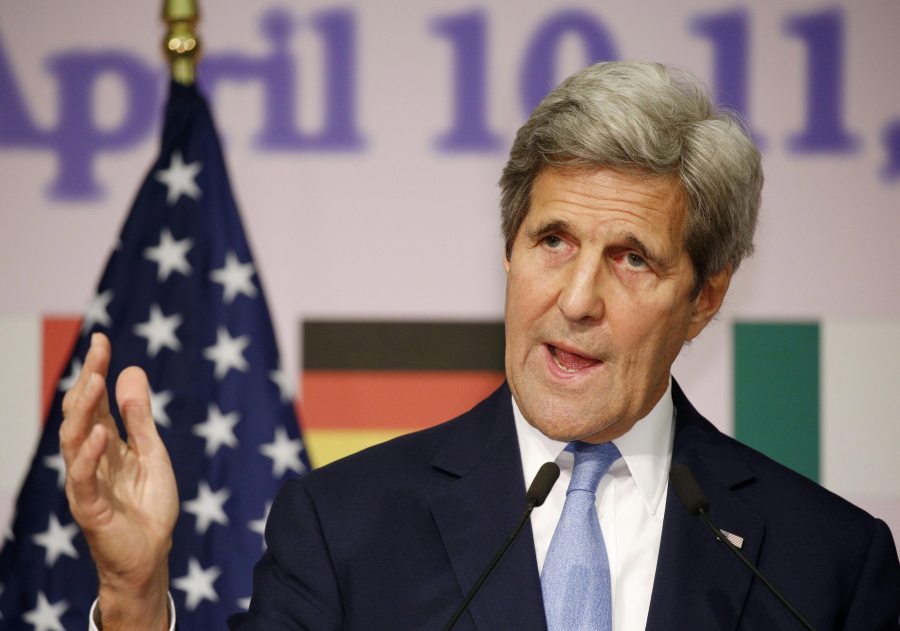LOS ANGELES — Secretary of State John F. Kerry extolled the controversial Trans-Pacific Partnership deal Tuesday as crucial to U.S. economic, strategic and diplomatic interests, hoping to inject new urgency into a top Obama administration priority.
Kerry warned in a speech here that the forces of globalization will overwhelm the United States unless it acts to harness them. Otherwise, he said, countries such as China will rush to fill the void and lower trade and labor standards even further.
“The choice for us is to lead and help define the rules of global trade, or to witness the fastest-growing markets race to the bottom, while standards antithetical to our interests and values become business as usual for billions of people across our planet,” he said at the Pacific Council on International Policy. “I can’t think of anything more dangerous or damaging to the rule of law since the end of World War II.”
Kerry’s remarks were directed as much at Congress as at the civic leaders and academic leaders who came to hear him speak at a downtown Los Angeles hotel on his way home from meetings in Japan.
The expansive agreement with 11 other countries — Australia, Brunei, Canada, Chile, Japan, Malaysia, Mexico, New Zealand, Peru, Singapore and Vietnam — was signed in February, but Congress still must ratify it before it takes effect. A vote is unlikely to happen before the lame-duck session after the November election, given the broad opposition among the major candidates to succeed President Barack Obama. The impact of international trade deals on American workers and growing income inequality have been major issues in the presidential primary campaigns.
Ohio Gov. John Kasich, R, is the only major presidential candidate in either party to support the TPP. The White House had hoped for a congressional vote by summer, but has been reluctant to push lawmakers for fear that the deal would be defeated.
“This may require some members of Congress tuning out the noise of the presidential election in order to focus on the merits of the agreement,” White House press secretary Josh Earnest said Tuesday.
The TPP is the largest regional trade deal in history, uniting nations that collectively account for 40 percent of the world’s gross domestic product. Supporters and critics of the accord have been lobbying Congress ahead of a highly anticipated report by the U.S. International Trade Commission on the deal’s economic impact.
On Tuesday, a group of public health, religious and labor groups wrote a letter urging Congress to reject the deal, saying it would make it more difficult for people to get affordable medicine. On Monday, food and agricultural groups wrote a letter pressing Congress to approve it, arguing it will help them sell their goods abroad.
Kerry argued that the TPP is crucial in a churning global landscape in which economic might is shifting to the Pacific.
“We know that with TPP, we will be far better positioned to protect our interests in the globe’s most dynamic region than we would be without it,” Kerry said. He added that the nation’s “future prosperity and security will also rest on America’s role as a Pacific power.”
Kerry said opponents have exploited fears of globalization, and he blamed technology, not trade, for eliminating jobs in traditional manufacturing.
In Washington on Tuesday, Kurt Campbell, the former assistant secretary of state for East Asian and Pacific affairs, and Derek Mitchell, former U.S. ambassador to Burma, also stumped on behalf of the TPP during remarks at the Truman Center.
Campbell called the accord a “strategic commitment on the part of the United States to engage in Asia,” and he added that trying to renegotiate the pact with 11 countries “would be very difficult.”



